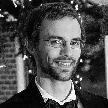Alumni Profiles
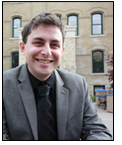 Jonathan A. Allan
Jonathan A. Allan
In 2007, I arrived at the Centre for Comparative Literature intending to write a dissertation on Virginia Woolf’s influence on Latin American literature, later I thought I’d write on Northrop Frye’s influence on Harold Bloom. By the time I’d left in 2012, I’d written a dissertation on love, loss, and the first time. I highlight this because the Centre is one of those rare spaces in which one is free to explore and follow ideas to wherever they may lead. To be able to dwell on an idea is a real luxury and it is one that the Centre and its faculty provide to students. When I finished my PhD, I applied for a three-month position at Brandon University, which has since turned into a tenured position. At Brandon University, I am a Canada Research Chair and Professor in the Faculty of Arts, where I teach in the English and Creative Writing department, as well as the Gender and Women’s Studies Program. Because of my preparation at the Centre, I have been able to develop and pursue an interdisciplinary research and teaching agenda. At Brandon University, I am able to collaborate not only with colleagues in the Faculty of Arts, but also, and increasingly, with colleagues in the Faculties of Science and Health Studies. I deeply value the interdisciplinary training that I received at the Centre because it seems to me that some of the most important questions we might have cannot be contained by and limited to a given discipline.
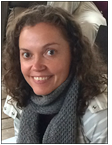 Sarah O’Brien
Sarah O’Brien
I completed my PhD in Comparative Literature at the University of Toronto in 2012. Being a student at the Centre for Comparative Literature allowed me to pursue interdisciplinary research interests in literature and film, to develop teaching expertise in a range of courses, to live in the incredible city of Toronto, and to make lifelong friends with fellow students and faculty. After completing my degree, I was a Marion L. Brittain Postdoctoral Fellow at the Georgia Institute of Technology. I am now an assistant professor, general faculty, in the Department of English at the University of Virginia, where I teach writing courses that position human-animal difference and film, television, and other media as the grounding matter for critical inquiry. I live in Richmond, Virginia with my husband and two dogs.
 Irina Sadovina
Irina Sadovina
After defending my PhD in 2018, I moved to the States to teach Russian language and literature at the University of Missouri. As a Visiting Assistant Professor, I get to teach both undergrads fulfilling their language requirements and graduate students pursuing their own projects. It’s fun and meaningful to witness people’s processes of figuring things out. This is something that I have become attuned to while working on my PhD at the Centre for Comparative Literature. CompLit trains you to recognize that the best academic projects are idiosyncratic for a reason. They are accounts of people feeling out for something as yet unsaid, which, when articulated, can shake up the received wisdom and accepted lingo of several academic fields. Yes, I’m optimistic about comparative thinking!
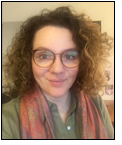 Catherine Schwartz
Catherine Schwartz
I graduated from the Centre for Comparative Literature’s PhD program in 2016. On the first day of school, then-director Neil ten Kortenaar said that this was a time to “learn how you think” and to explore new ideas. He was right. Being at the Centre gave me the opportunity to exchange ideas with incredible students and faculty, to teach undergraduates, to travel, and to pursue research in some wonderful archives.
The privilege to learn how I think made me realize that I did not want to become a professor. Completing the PhD for its own sake—rather than as a path toward an academic career—was exciting and challenging. After graduating, it became clear that a doctoral degree in Comparative Literature doesn’t only prepare you for academia. It fosters a wide range of unique and sought-after skills. The completion of my doctorate was instrumental in securing a role as a Proposal Specialist at a law firm in Montreal. Specifically, the PhD program trained me to express complex ideas clearly, to manage a wide range of projects simultaneously, and to form and defend arguments. My job often requires me to travel to Toronto, where I get to see old friends—many of whom I met at the Centre, and who continue to push me to explore new ideas.
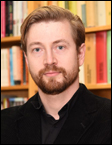 Łukasz Wodzyński
Łukasz Wodzyński
When I came to the Centre, I saw in it an ideal environment to pursue my interdisciplinary interests. However, the experience of my doctoral studies has gone far beyond this initial quest for intellectual freedom and theoretical enlightenment. I became part of a vibrant community of scholars and students, whose friendship, support, and insights proved fundamental not only for my dissertation but also my future professional career. Through classroom discussions, consultations with the faculty, student-organized conferences, seminars with Northrop Frye Professors, study abroad opportunities, workshops, reading groups, and all other learning opportunities offered by the Centre, my understanding of both the field and profession grew with each year in the program. My intellectual adventure began in earnest.
Shortly after defending my dissertation I was offered the position of Assistant Professor, Teaching Stream at the Department of Slavic Languages and Literatures and the position of Acting Director of the Polish Language and Literature Program at the University of Toronto. The experience I gained during my years in the Comparative Literature program not only allowed me to survive the intensity of these first years in the profession but also gave me tools to continue developing as a scholar.
Beginning in the fall of 2019, I am working as an Assistant Professor of Polish at the University of Wisconsin-Madison. My forthcoming project – a study of representations of the adventure experience in post-communist Europe – is the latest outgrowth of my comparative roots. And so, the adventure continues.
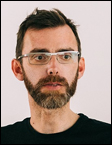 Martin Zeilinger (photo by Yuula Benivolski)
Martin Zeilinger (photo by Yuula Benivolski)
I joined the Centre for Comparative Literature with pretty diverse and unstructured interests, and perhaps less of a plan than I’d care to admit. When I left after six years of intense, challenging, and infinitely rewarding work with brilliant thinkers (many of whom have become close friends), I had completed an interdisciplinary study of appropriation practices in contemporary art, which built on literary theory but reached far into the study of digital art, media theory, legal theory, and political philosophy. Studying at Comp Lit the Centre for Comparative Literature gave me the confidence to tackle new theoretical frameworks, disregard disciplinary boundaries and conventions, and develop new methodologies for working across and beyond a wide range of topics and media.
Since defending my thesis in 2009 (on my birthday, no less), I have been curator, adviser in copyright cases, media arts practitioner, and, of course, researcher and university teacher. After leaving U of T, I held a SSHRC Banting Postdoctoral Fellowship at York University (2011-2013), and then taught at virtually all Toronto universities for a few years. In 2015, I accepted a position as Lecturer in Media at Anglia Ruskin University (‘the other university in Cambridge’). Moving to Europe introduced me to a complex new world of neoliberalized higher education, but also gave me access to large networks of theorists, activists, and art communities working at the cutting edge of my critical interests. Since 2019, I have been Senior Lecturer in Computational Arts & Technology at Abertay University (Dundee, Scotland), where I continue to develop practice-based approaches to research in digital arts contexts. I also continue to co-curate Vector Festival (Toronto) and NEoN Festival (Dundee). My current work focuses mainly on experimental artistic uses of videogame technologies, cryptocurrencies, and artificial intelligence.
Most of what I do is shaped by the exceptional individuals from whom I’ve had the privilege to learn at the Centre for Comparative Literature. Though none of them could probably have guessed the strange mix of things I do today, it is all owed to their generosity, encouragement, and open-mindedness
…





